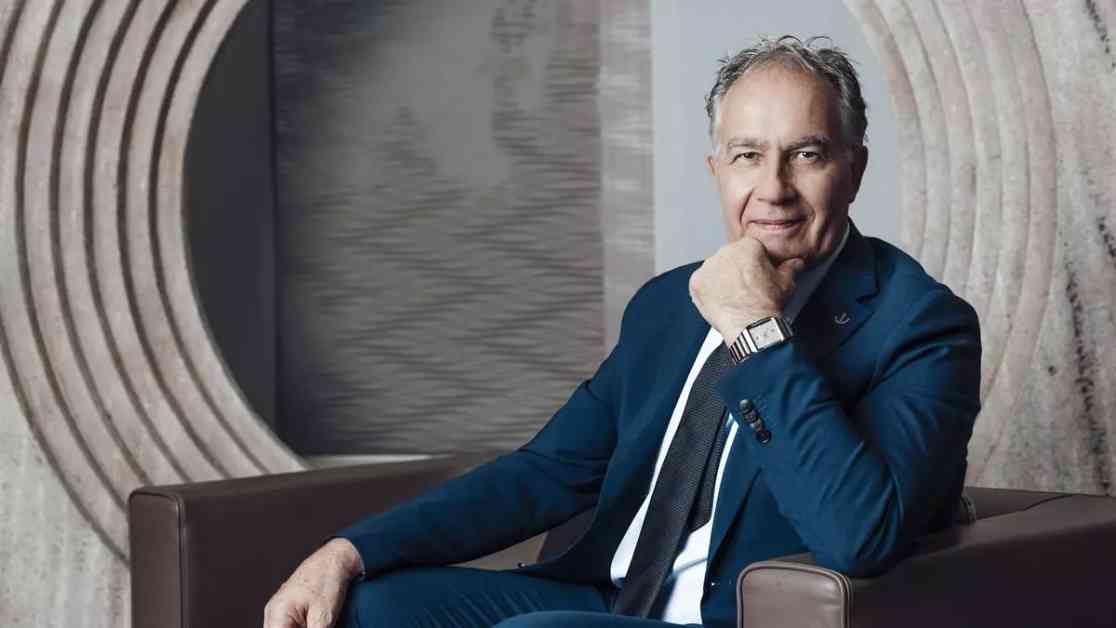Swiss Watchmaker Rado CEO Discusses India’s Rising Significance in Luxury Industry
In a world where luxury is synonymous with status and sophistication, the global luxury industry is continually evolving. Among the multitude of countries contributing to this dynamic landscape, India has emerged as a significant player, catching the attention of renowned luxury brands worldwide. One such brand is Rado, a Swiss watchmaker with a rich history and a strong foothold in the luxury market. Adrian Bosshard, the Global CEO of Rado, recently shared insights on the brand’s perspective on India’s growing relevance in the global luxury industry.
A Lucrative Market: India’s Allure to Luxury Brands
For Rado, India stands out as a premier market in terms of value, reflecting the country’s increasing affluence, educated population, and expanding economy. The allure of India lies not only in its domestic market growth but also in the outbound travel segment, where Indian consumers exhibit a growing appetite for luxury brands. Adrian Bosshard emphasized, “Over the past few years, it is absolutely clear that India is becoming a more and more relevant player for the global luxury industry. With its rising population, increasing education levels, growing economy, and affluence, we are seeing strong development of the domestic luxury market in the country.”
With a legacy spanning over 60 years in India, Rado has cultivated a robust brand presence, bolstered by a network of multi-brand premium watch stores and 32 mono-branded stores operated by franchise retail partners. This strategic expansion has positioned Rado as a prominent player in the Indian luxury watch market. Bosshard noted, “India is the number one market for us. We have had a unique presence in the country for over 60 years with strong brand awareness.”
Charting New Horizons: Rado’s Expansion Plans in India
As Rado continues to thrive in the Indian market, the brand is committed to enhancing its retail footprint and customer engagement strategies. Nearly 40% of Rado’s sales in India originate from its mono-brand boutique stores, a testament to the brand’s resonance with Indian consumers. Bosshard outlined the brand’s expansion strategy, stating, “Our aim is to strengthen collaboration with key retail partners and open corporate-owned boutiques in the coming months. Therefore, we will have both franchise-owned and corporate-owned mono-brand boutiques in India.”
While the global luxury market witnesses a growing presence of e-commerce channels, Bosshard emphasized Rado’s unwavering focus on brick-and-mortar stores to deliver a comprehensive brand experience and foster consumer relationships. He highlighted, “Globally, about 5% of Rado’s business comes from the e-commerce channel, with the biggest share in the US market. In India, e-commerce is currently a relatively small part of the business. We have our eyes on it and we will develop it in the future. But it will never be a significant part of the business and serve as an alternative.”
In conclusion, Rado’s strategic approach to the Indian luxury market underscores the brand’s commitment to innovation, consumer engagement, and sustainable growth. As India continues to ascend in the global luxury landscape, brands like Rado are poised to capitalize on the country’s burgeoning market potential. With a blend of heritage, craftsmanship, and a forward-thinking vision, Rado exemplifies the essence of luxury in a rapidly evolving world.























